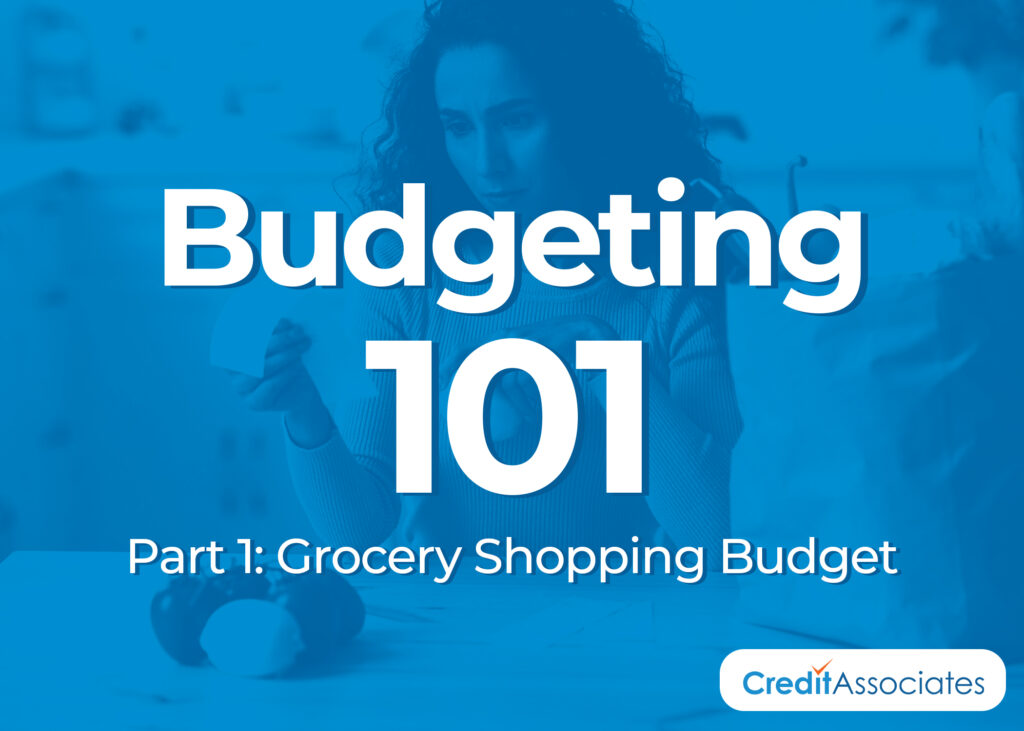Do you need to start budgeting your finances, but don’t know how? It’s not as difficult as you may think. Let’s break down the basics of budgeting in our new blog series, Budgeting 101!
Getting Started
1) Write down your total net income
The single most important part of a budget is your monthly income. The easiest way to find this is to look at your pay stubs and see how much money you receive after taxes are taken out.
2) Write out all of your expenses
Your fixed expenses are payments such as your mortgage or car payments. This is what you must work around in your budget. It’s not likely you’ll be able to reduce these, so your variable expenses are what to focus on. Your variable expenses are things like food and entertainment, where you can cut down. Because those expenses vary month to month, it helps to find an average of what you spend to use for your budget.
3) Set your goals
Do you have a specific financial goal you want to accomplish? Maybe buying a house or car, saving for retirement or college? Even if your goals aren’t quite so big, and you just want a rainy-day fund, now’s the time to figure those goals out. Set goals will remind you to stick to your budget and remember what you’re saving money for.
4) Adjust and readjust
Now that you have the pieces of a budget, it’s time to put them together. You know how much money you take in during the month, and how much you lose. Whatever’s left goes towards what you’re saving for.
Grocery Planning
Now that you have the basics on creating a budget, let’s focus on one particular part of that budget: food. You need to save more money on groceries, but it just seems so complicated. Should you give up and order pizza? Not so fast!
The average American household spends over $6,000 a year on food, at home and in restaurants. Let’s go over some tips on how to start saving on your household food essentials.
-
Make a list beforehand
Going into a grocery store unprepared is an easy way to buy things you don’t need, or already have. Making a list of everything you really, truly need is key to preventing such purchases. Think about keeping a running list in your kitchen you can add what you need to throughout the week. This way you’re creating your list of needed groceries gradually instead of having to set aside time to plan what you need.
-
Plan meals off what you already have
Planning meals is half the battle of buying groceries. Make it easier on yourself and your wallet by planning melas around what you already have in your pantry or refrigerator.
-
Shop in bulk where possible
Have you ever walked through a grocery store aisle full of barrels of mysterious grains and spices? That aisle is now your best friend. Buying spices or grains (such as flour or breadcrumbs) in bulk can save you tons of money if you use it right. If you need just a small amount of a certain spice, and don’t want to buy the entire jar, this is a great option for you.
-
Go to farmer’s markets
If you’re near a farmer’s market, you’re in luck! Produce at the farmer’s market is often fresher, cheaper and of higher quality than at the grocery store. Farmers are also more willing to give you deals or throw in extra products. You’ll also be supporting small, local business.
-
Buy in-season produce
Doing some research to see what produce is currently in-season before you shop will help you in the long run. In-season produce is produce that naturally grows during that particular time of year. It usually of higher quality and cheaper than other produce being sold that may not be in-season.
Also, if you can prepare your produce yourself, you should! While it may be more convenient to buy your produce pre-cut, it’s not cost-effective if you’re buying large amounts. It’s much less expensive to buy whole produce and cut it yourself.
-
Buy generic over name brands
Buying generic products over their name brand alternatives is much more cost-effective. While you may have a particular fondness for a certain cereal, the generic version most likely tastes the exact same for a dollar less.
-
Join loyalty programs
Most, if not all, grocery stores have a rewards program. These programs are a goldmine of coupons and deals you may otherwise not have known about. These programs may also include built-in deals, such as 5% off every purchase. That may not seem a lot, but it can go a long way on bigger purchases.
-
Use curbside pickup to avoid impulse buys
Curbside pickup is not only incredibly convenient, it’s helpful savings-wise as well. Buying solely what you need online prevents the temptations that come with physically walking around a store.
For more money saving and budgeting tips, browse our CreditAssociates blog! If these tips aren’t enough for you, and you’re concerned about managing your debt, give our certified Debt Consultants a call. We can review with you your financial situation and see if our debt-relief program is right for you.

